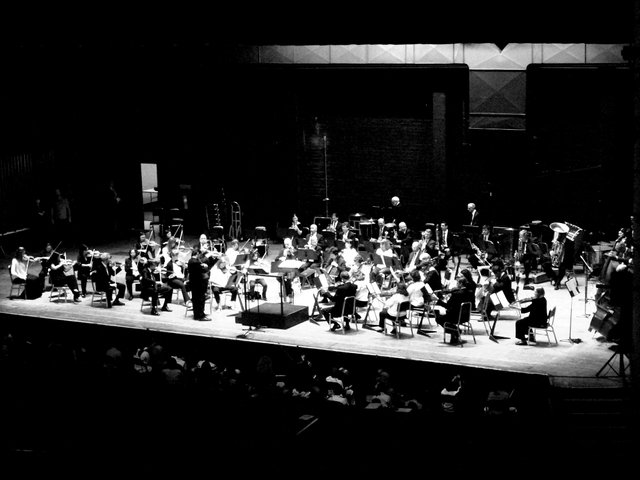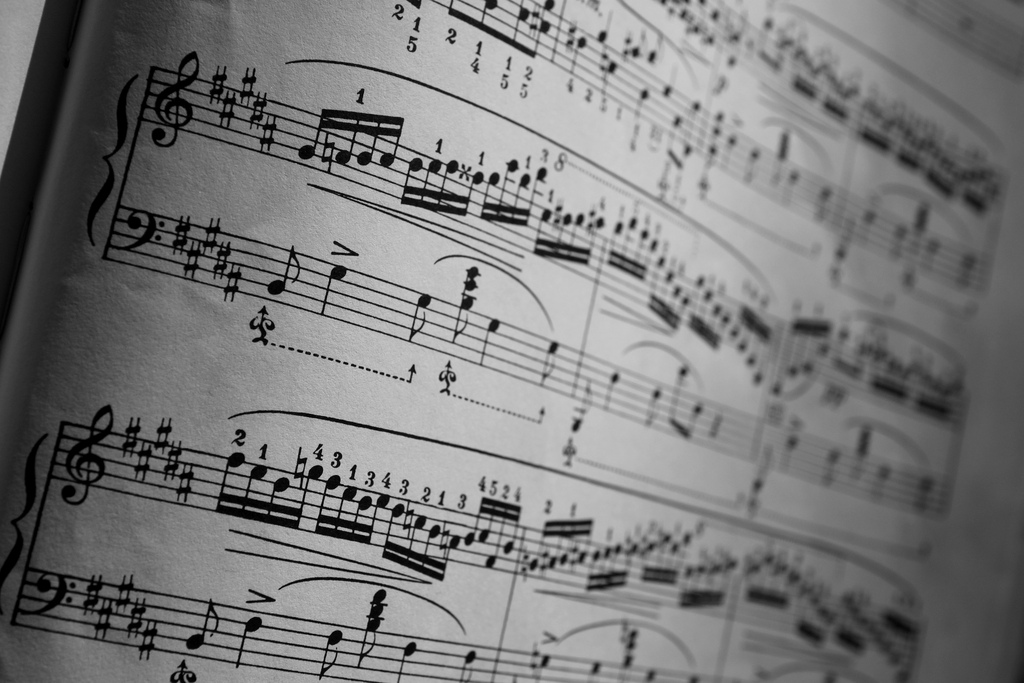Random Thoughts about Amateur Musicianship
What Is Meant by “Amateur”?
Amateur musician: the first part of that word, ama-, relates to the French words ami and amour, respectively meaning "friend" and "love." People become amateur musicians because they consider themselves to be friends of – they love – music.

The difference between "amateur musicians" and "professional musicians" is NOT chiefly a distinction in ability, but of livelihood. Amateurs respect that there are people out there who are paid to provide that service, and such individuals are called professional musicians. Professionals probably enjoy doing their work, but what makes them "professional" is that they are PAID for what they do. By contrast, amateurs learn to play an instrument, say, the guitar, chiefly so they can play music "for the fun of it" and do not expect to be paid for pursuing music as a hobby.
I have NO problem with people learning to play music simply for the joys of music-making. Do you?
In fact, amateur musicians are VITAL to the success of the music industry. It is NOT a negative in this sense, for it helps build an audience base, an appreciative audience. This is mainly because amateur musicians, who have no doubt spent countless hours learning to play an instrument themselves, perhaps even paying for private lessons with a teacher - well, amateurs understand how much time and effort is required to learn to play an instrument, and to learn to read printed music!
Amateur musicians KNOW what it takes!
We should take amateur musicianship seriously, and promote it. Never look down upon amateur music making, in a misguided display of snobbishness. Amateur musicians LOVE and support the music industry, as long as the incentive to do so is there. They love to watch and hear what YOU, as a trained professional, are able to accomplish on their favorite musical instrument. As professionals, we NEED to have large numbers of amateur musicians in our audiences, in order for us to survive.
This of course means that we should not put music teachers and their students in a negative light. The term “amateurish” has a negative connotation, but now we understand that it should be considered as a compliment. We want audiences who love the art, do we not?
Literacy, and Sheet Music
Understand that 21st century audiences have gotten away from proper appreciation of musical talent of two centuries ago. Audiences of classical music in the 19th century, in both Europe and America, were populated by high percentages of people, men and women, who could actually play the same instruments that were in the orchestra on stage, play them well, and, judging from the sales of sheet music in the 19th and early 20th centuries, they could most likely read printed music, too. At that time in history, no one had CDs or DVDs, or online streaming of music. (See the book American Orchestras in the Nineteenth Century, edited by John Spitzer, referenced in the description below.)

Funny, now that we have ready access to audio and even video recordings of professional performances, comparatively few people (other than said professionals) know how to fluently read printed music. Ironic, isn't it? An audience that has become less literate is not an improvement, is it? Musically-illiterate audiences are a liability to us professionals!

This state of affairs ought not continue. Printed sheet music and scores are somewhat like the written script of a theatre play, or movie. I have never heard of a modern theatre troupe in which the actors could not even read a written script. Have you? Almost any serious drama, from ancient Greece, through William Shakespeare, and on into our day, is initially hashed out on the written page, and the actors need to know, understand, practice, memorize and deliver their lines. The same goes for musicians in an ensemble. It is absurd to think that all music learning and performance must be limited to rote learning by ear, and improvisation.
Let’s not bite the hands that feed us! Stop discouraging wannabe musicians from learning to read. Rather, educate and promote amateur music making, whether in community orchestras, concert bands, choruses, or chamber ensembles. Encourage music literacy. We will in this way cultivate the gradual development of audiences that understand and appreciate what we are doing, as professional musicians.
Useful Reference: American Orchestras in the Nineteenth Century, edited by John Spitzer. Published 2012, University of Chicago Press.
IMAGE CREDITS, in order of appearance -
Piano, by Sander van der Wel (download 18_01_23 (commercial use & mods allowed): https://flic.kr/p/8Zurh3
North Carolina Symphony, by Gerry Dincher (download 18_01_23; commercial use & mods allowed): https://flic.kr/p/brZqDw
Music, by MaxiuB (download 18_01_23; commercial use & mods allowed): https://flic.kr/p/8Vs48b
Creative Commons License: https://creativecommons.org/licenses/by-sa/2.0/legalcode
My Music Theory Channel: https://www.youtube.com/c/fundamentalstofugue
The OCD Team discovered this gem of a post!
Reply to this comment if you accept, and are willing to let us share your gem of a post! By accepting this, you have a chance to receive extra rewards and one of your photos in this article may be used in our compilation post! You can follow @OCD – learn more about the project and see other Gems! We strive for transparency.
If you would like to be resteemed by @ocd and reach a bigger audience, use the tag ocd-resteem. Three posts using this tag will be chosen each day by our curators to be RS. Good Luck!
@OCD now has a witness, feel free to vote for @ocd-witness if you want to help support other undervalued authors!
Yes I accept and am willing to let you share this gem. Thank you very much! Following.